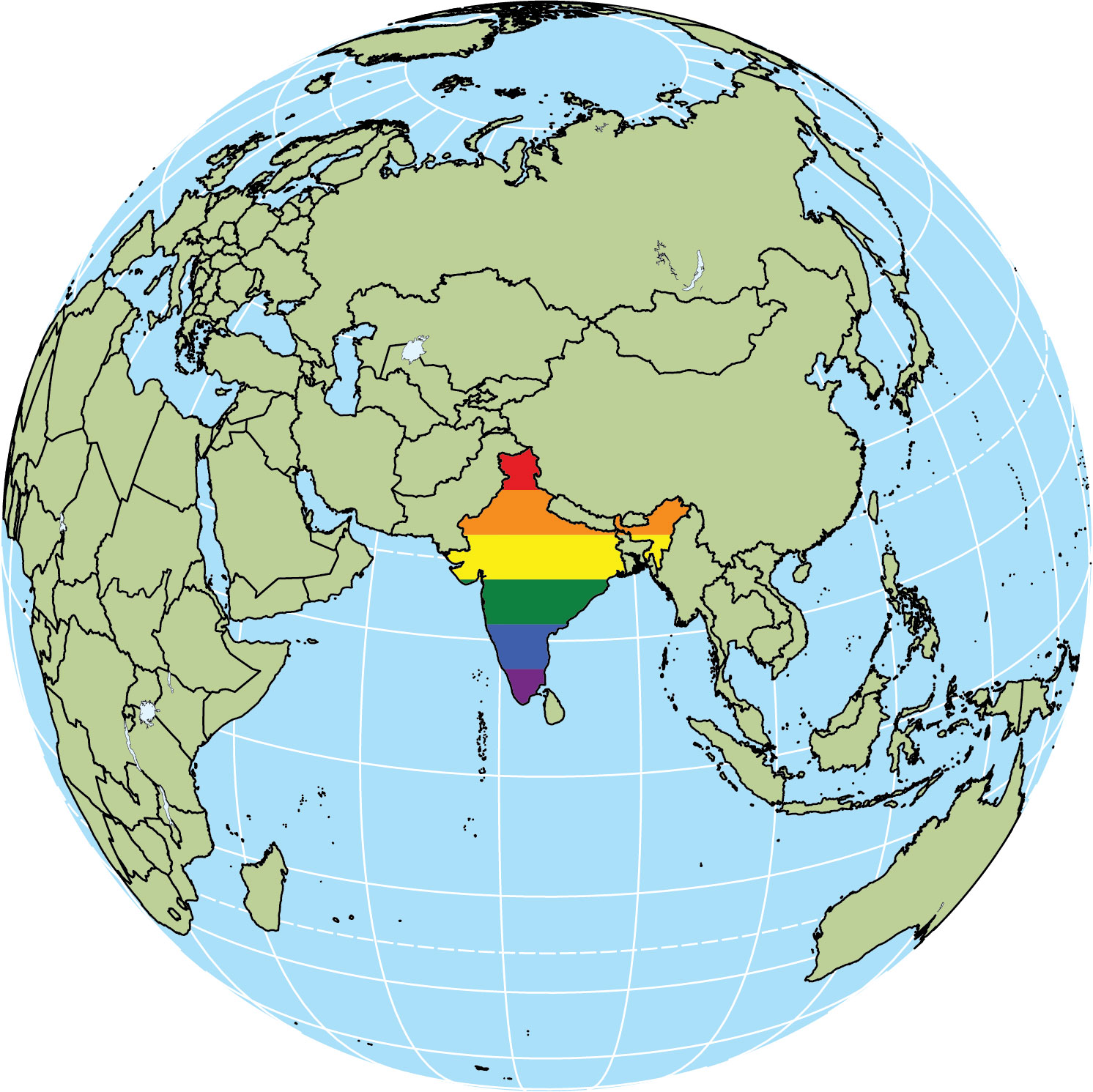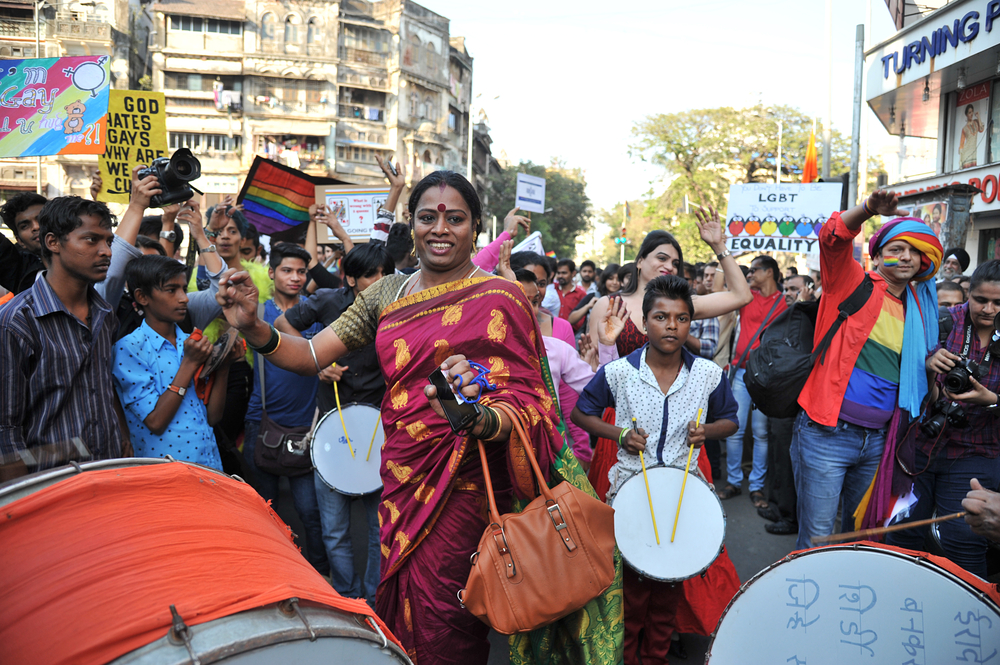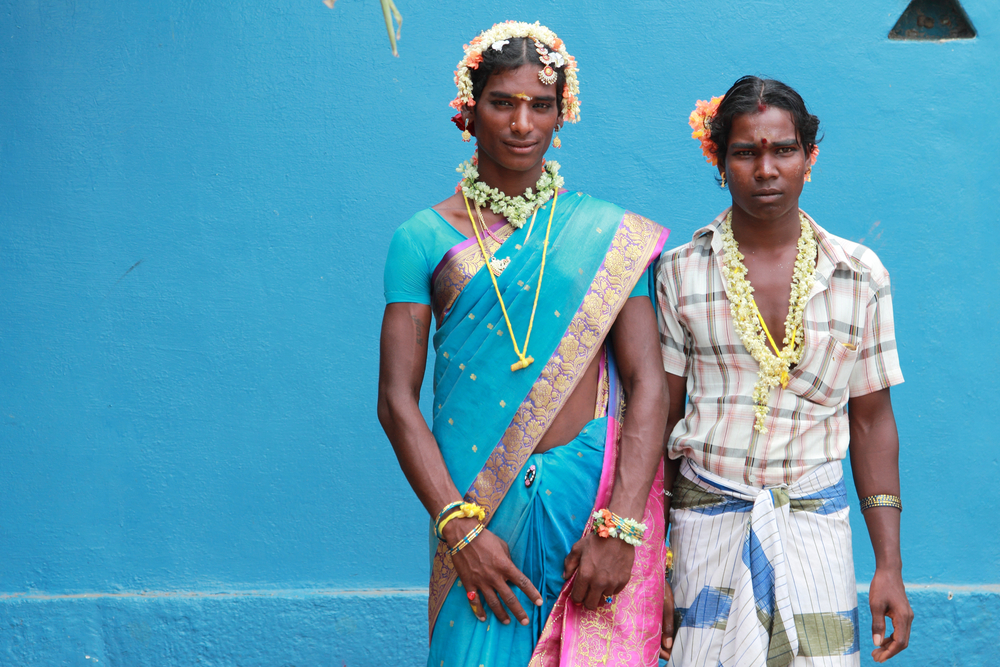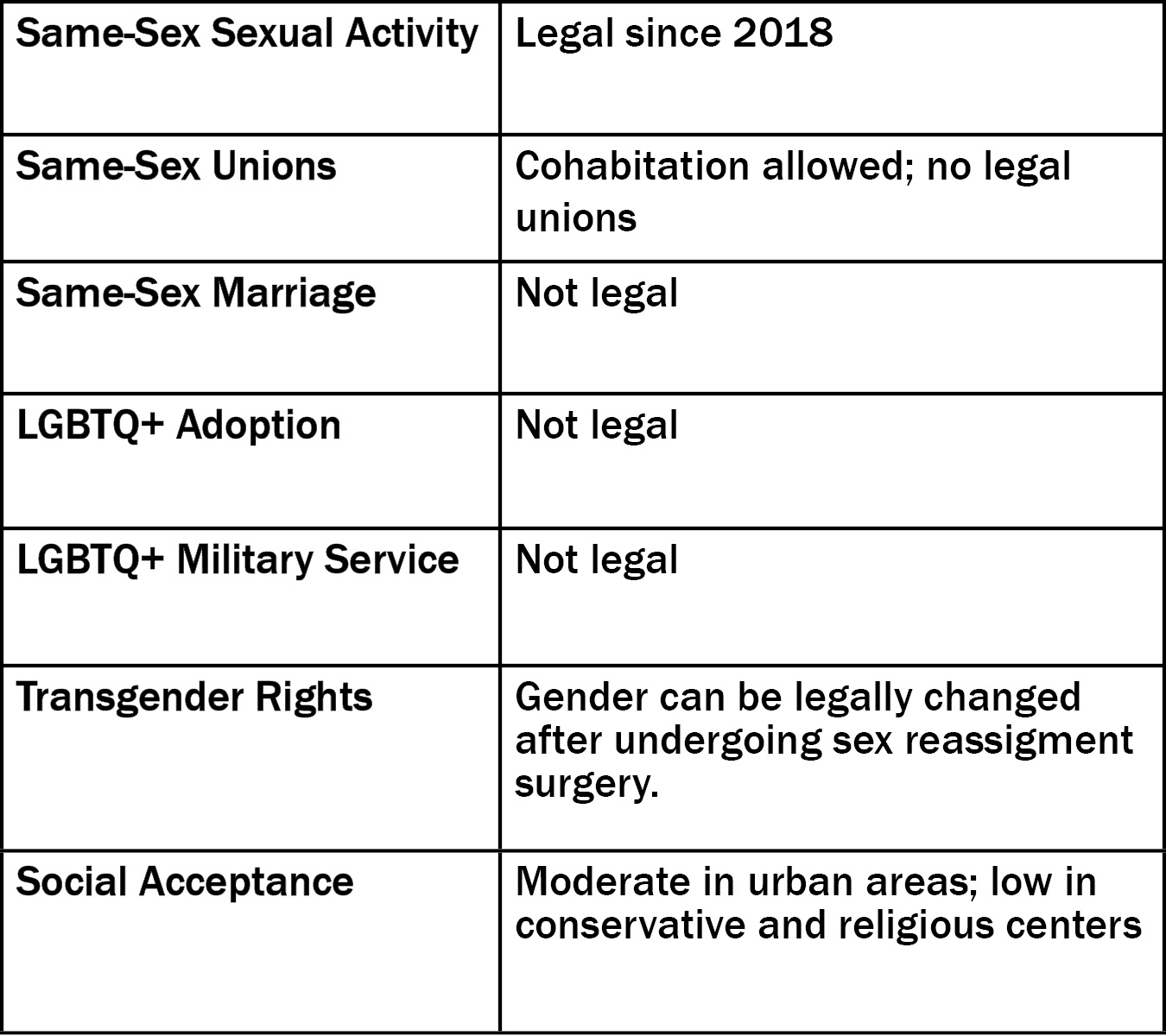LGBTQ: Legal and Cultural Status
Over the past few years, the LGBTQ+ community has been the beneficiary of a marked shift in global public opinion, with movement towards greater cultural acceptance and enhanced legal status. Nevertheless, views are not uniform across all countries.
In the most progressive countries, members of the LGBTQ+ community enjoy cultural acceptance, social freedoms, and full legal status. In the most restrictive countries, identifying as LGBTQ+ or engaging in same-sex acts is punishable by jail or death.
When preparing to travel abroad as a tourist or for business, members of the LGBTQ+ community should thoroughly research country-specific legal, cultural, and security issues prior to departure.
Understanding where a destination country falls on the spectrum of acceptance allows LGBTQ+ individuals to decide whether to travel to a given destination and to understand how to conduct themselves safely when they arrive.
Legal Facts
Same-Sex Sexual Activity
In 2018, India’s Supreme Court overruled a colonial-era law known as section 377 which had criminalized same-sex sexual activity. Overruling the law effectively legalized same-sex sexual activity throughout India. The court cited four aspects of the constitution that made sections 377 unconstitutional. Those were Article 14 (right to equality), Article 15 (right against discrimination), Article 19 (the right for freedom of speech and expression), and Article 21 (the right to privacy).
Same-Sex Unions
Same-sex unions are not legally recognized under Indian law. While it is legal for the cohabitation of a same-sex couple, they are not offered any of the privileges of married heterosexual couples under any legal construct.
Same-Sex Marriage
Though there have historically been a number of bills proposed within the Indian government to legalize same-sex marriage, the practice has not yet been legalized. There are currently bills under consideration within the Indian parliament, but same-sex marriage is not legal at this point.
Adoption
Though there have historically been a number of bills proposed within the Indian government to legalize adoption by LGBTQ+ couples, the practice has not yet been legalized. There are currently bills under consideration within the Indian parliament, but adoption by LGBTQ+ couples is not legal at this point.
Military Service
There are bills under consideration to allow LGBTQ+ individuals to serve in the military. However, at this point the practice is illegal.
Gender Identity Laws
According to the Transgender Persons Protection of Rights Bill passed in 2019, transgender individuals have the right to apply to a court to have their legal gender changed so long as they have undergone sex-reassignment surgery. The law also criminalizes discrimination of employers and public education institutions on the basis of gender identity. It also established a National Council for Transgender Persons.
Anti-Discrimination Laws
When the supreme court declared the law known as section 377 unconstitutional, they city four articles of the constitution. One of these sections was section 15, the right against discrimination. Section 15 of India’s constitution protects individuals against discrimination solely on the basis of sex, religion, race, caste, or place of birth. There is still an opportunity for the Indian government to provide more legally specific anti-LGBTQ+ protections.
The law mentioned above, the Transgender Persons Protection of Rights Bill passed in 2019, is a trans-specific anti-discrimination law.
Cultural Considerations
Public Opinion
According to surveys conducted in 2021, less than half of Indian citizens believe same-sex couples should be allowed to marry. Roughly one in five Indian citizens don’t believe LGBTQ+ couples should be entitled to any form of legal recognition. However, another survey found that just more than half of India’s citizens believe that the LGBTQ+ community should be legally protected from violence and discrimination. A similar portion of the population believes that LGBTQ+ couples are just as likely to be successful parents as heterosexual couples.
Public Displays of Affection
In India, public displays of affection are broadly considered unacceptable. Even light hugs and kisses are socially taboo. Interestingly, affection between heterosexual individuals of the same sex is acceptable. It is common to see straight men holding hands in India, or acting outwardly affectionate.
Opinions on Cohabitation
There are no laws against the cohabitation of LGBTQ+ couples in India, and though there are some social stigmas against LGBTQ+ individuals sharing a bedroom. These opinions are more common in highly conservative or religious communities throughout India.
Consistency of Opinions
The major cities of India, especially Mumbai, have long been seen as progressive centers where LGBTQ+ individuals are supported and recognized. There are pockets of conservative and religious communities throughout India that do not support LGBTQ+ individuals.
Article written for World Trade Press by Taylor Holloran.
Copyright © 1993—2024 World Trade Press. All rights reserved.

 India
India 


